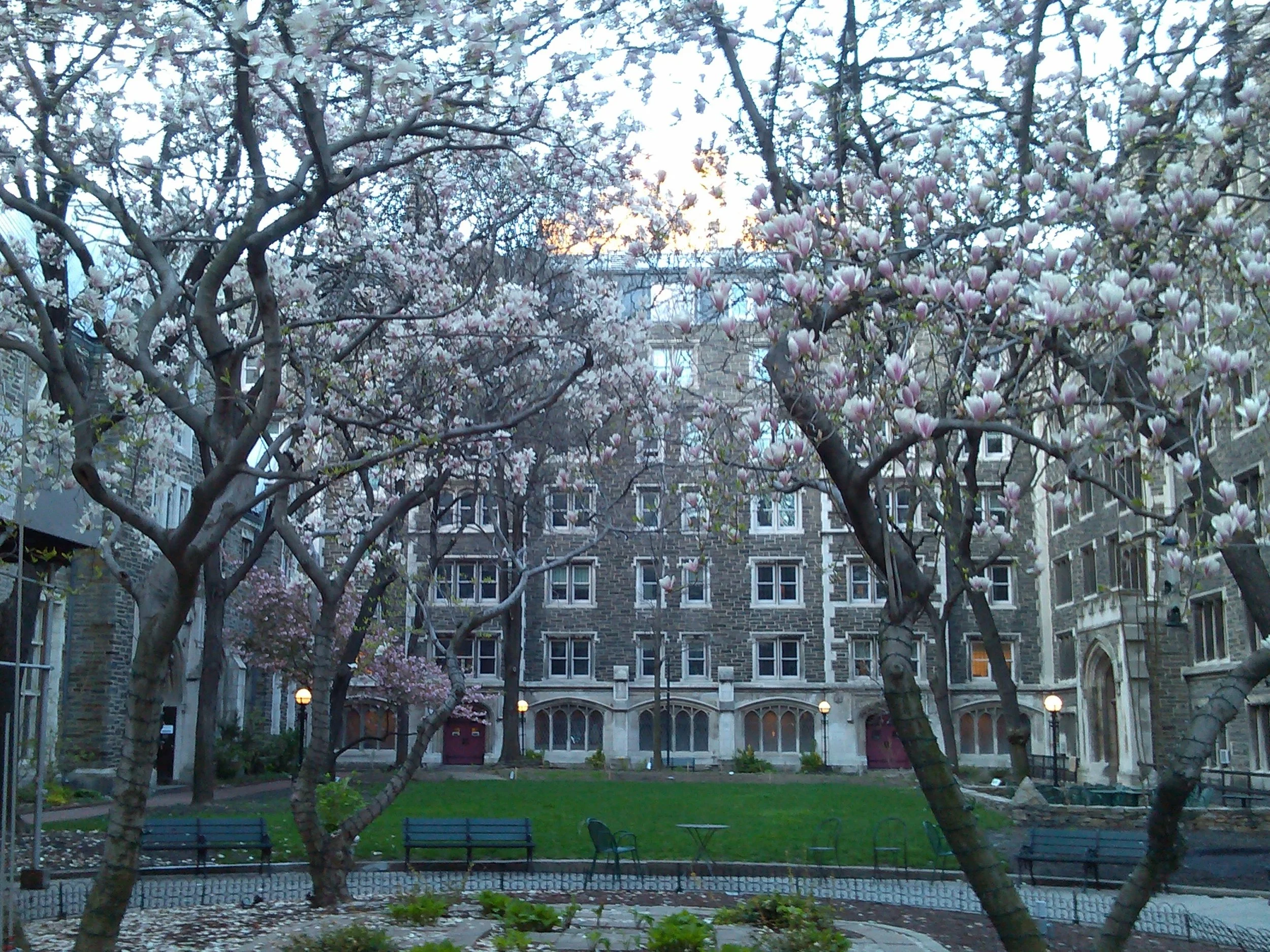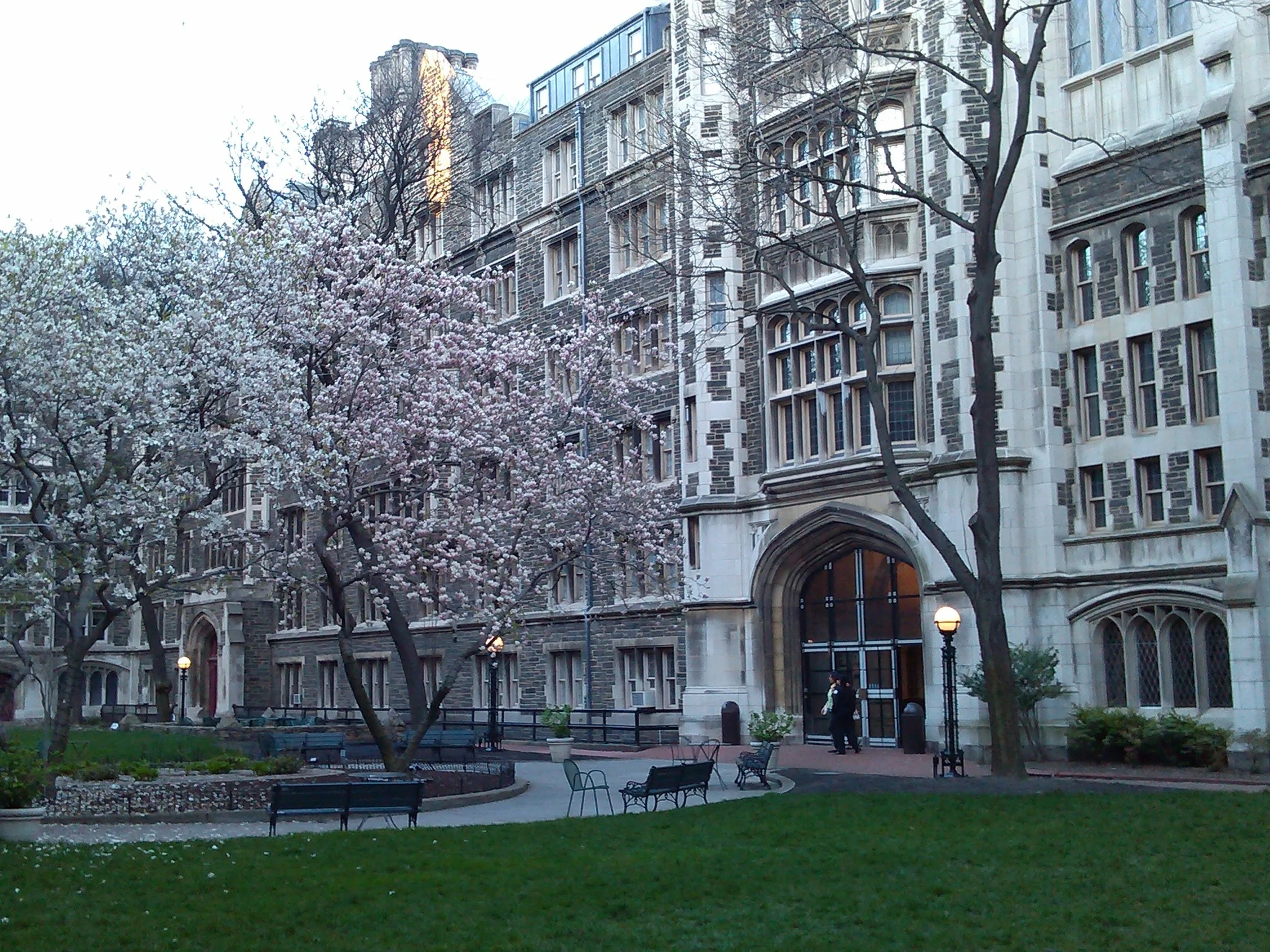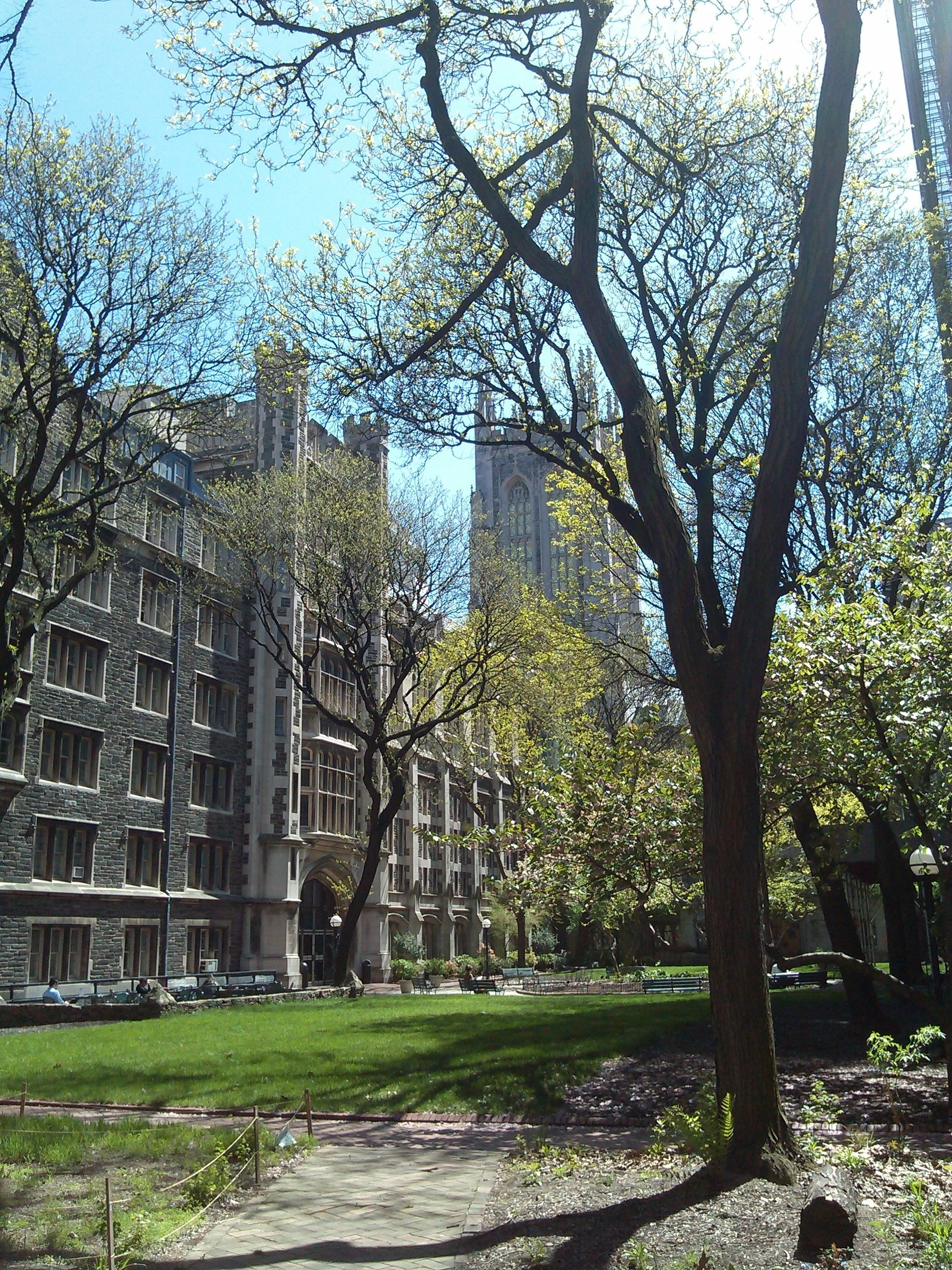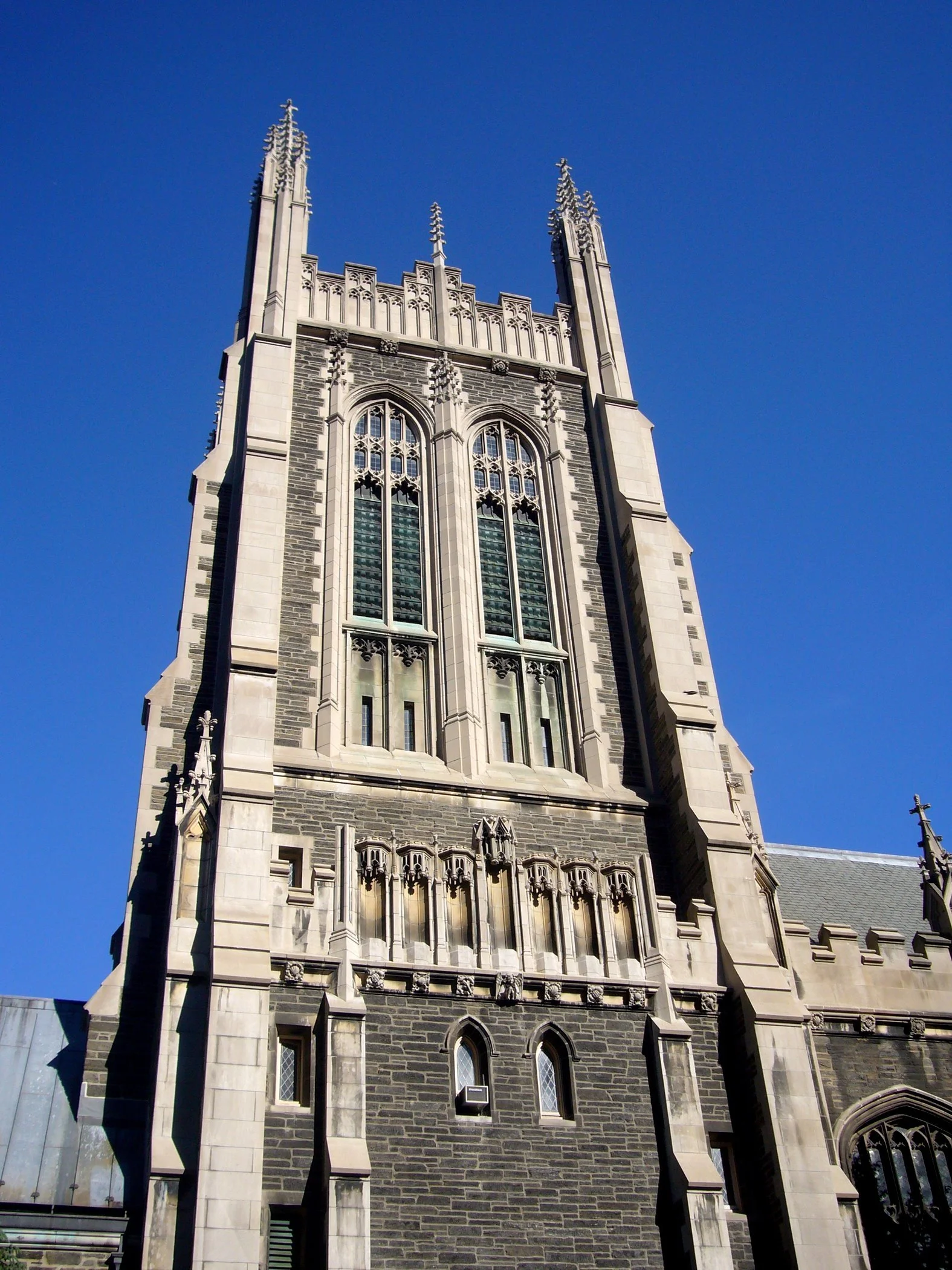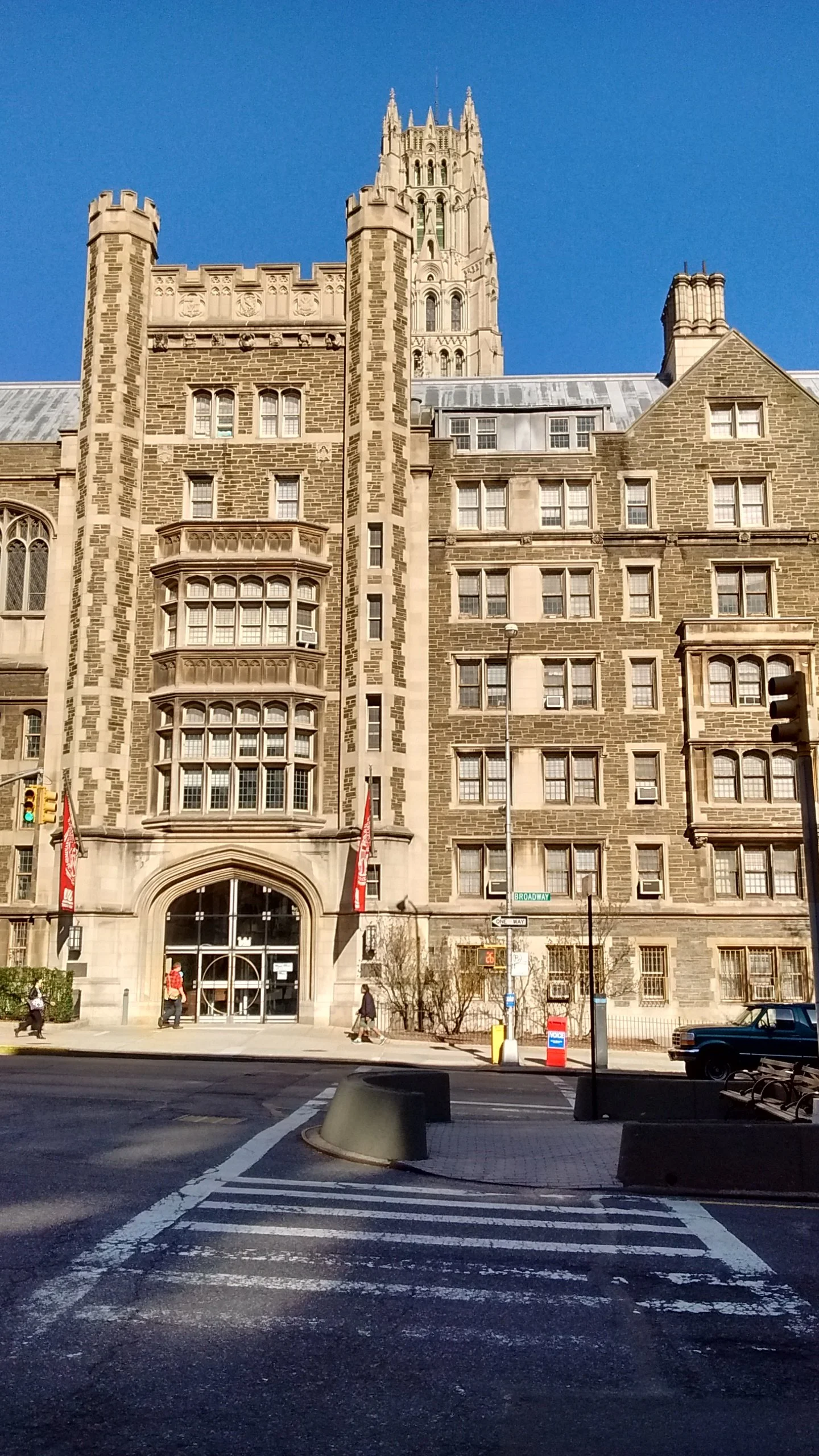I remember a radiant smile, a lively presence, and eyes that shine from intelligence. The whole scene must not have lasted more than half a minute. How many seconds would it have taken for the elevator to go down five flights? We lived on the sixth floor of Union Theological Seminary of New York, and Dr. West must have entered on the fifth, during our descent. My husband introduced me to his former professor (and, by then, colleague, since the former, immediately after his PhD, had started to get teaching gigs), and I remember that, although I had no idea who the man was, I thought he was emitting light, joy, and that he seemed to have the rare talent to be genuinely interested in other human beings – a charisma that you cannot fake; you either have it, or you don't.
We must have exchanged a warm handshake because I remember some sort of physical contact – maybe he even patted my head in a fatherly, clumsy manner. Or maybe this gesture is an addition of my own onto the recollection scene (an extension of the instantaneous thought, upon seeing his messy, “windblown” shag, that we are connected by unruly curly hair), since even the most innocent touch by a professor in the US academic ecosystem is absolutely unacceptable and could send you to jail.
-Who was that?
-Cornel West; philosopher, star professor, one of the top intellectuals of the country.
That was around 2015.
Union Theological Seminary: my Gothic Revival castle
I definitely must have crossed paths again with the professor before that scene of introduction, since I had the inexplicable luck to live in UTS - my Gothic Revival “castle” - for a whole twelve years. I secretly considered myself the “chatelaine” – the housing director must not have believed his eyes when he finally saw me pack up and check out in 2017 – I think that no non-faculty person has managed to live for twelve years in the “fortress” (and absolutely legally).
My theological castle kept in store many wonders. When the Super Shuttle dropped me in front of the neo-Gothic jewel with the three towers on Broadway and 121st in August 2005 so that I could start my Directing MFA at Columbia, I thought that the driver had made a mistake; and yet, this was where the university had assigned me housing: in the UTS dorm.
Founded in 1836, the top theological school, though comprising both theoretical as well as pastoral concentrations, is non-denominational and, since 1928, it constitutes part of Columbia University. The two blocks occupied by the 1908 Perpendicular Gothic complex I treated as home, since that's where my teeny-tiny dorm room was located: I would walk around in my flip-flops and pajamas, holding my coffee, in the meandering hallways, enchanted by the tracery of the windows, and it was equally possible to bump into the Dalai Lama as well as into the “Law & Order” detectives, since UTS does not constitute only my favorite location but also that of the producers of the eternal NYC tv series. (To this day, I encounter episodes filmed in my castle!)
We would have perhaps exchanged polite nods with Dr. West while climbing the spiral marble staircase of the lacy Rotunda under the ribbed vault, or, most probably, we would have enjoyed the bursting pink and mauve blossoms of the magnolia, seated on neighboring benches in the gem of the whole facility, the dreamy, fairytale-like, unique, they say, in all Manhattan, “quad” – the majestic quadrangle of the castle, designed after a Cambridge enclosure. (Ivy League veteran Dr. West, on the other hand, might not have been as impressed with the architectural treasure: before coming to UTS, he had already studied and taught at Harvard and Princeton.)
Life in the theological tower
Apparently, there is a strategy of cultivating diversity and multiculturalism behind the system of “mixing” - of assigning housing to graduate students from the whole spectrum of the much sought-after institution and in various buildings, with all possible variations of ethnicity, age and concentration. I can testify first-hand that the dispersion of all kinds of program concentrations (in the UTS dorms live not only theologians but also students from all grad schools) indeed constitutes an efficient method of exposure to all possible “others” - with its ups and downs.
First, the up side: I've said it before - I met my (Russian, then PhD in theology candidate) husband in the laundry room. We lived in different halls but we were united by the washing machine. And with the Bostonian (daughter of Pakistani immigrants), psychology PhD candidate Ashley, one of my approximately thirty floormates, the three years we shared bathrooms and kitchen bonded us into a lifelong friendship. (Our rooms were thankfully individual, but they didn't even have a sink – bathrooms and kitchen were shared.)
But I will also remember for a lifetime the Chinese geniuses (it's no exaggeration, they had been selected among thousands to get into Business School) who clogged our communal sink. They may have been of incredible intelligence in their sciences, yet they were unable to comprehend the pedestrian reality that our humble sink, though at the lustrous Columbia, was not equipped with a food processor. Every night, the same drill: I would unclog the rice of the Chinese genius, I, who was running out of breath directing in the same week Chekhov and Shakespeare and Marivaux, I, who, at the end of the day, was the artist of the company, therefore entitled to live up in the clouds, and yet I proved much more down to earth than the business administration PhDs. (I often wonder about those former floormates of mine: they must by now be much sought-after corporate executives, but how do they manage since they did not have a clue for months, years, that they were clogging the sink?)
Fraternity is hard, Brother West. Setting the notion of love at the center of his philosophical work as well as of his writings, the professor calls everybody “brothers and sisters.” He writes about economic inequality, exposes American consumerism and fights for a fair society of solidarity, a perspective exceptionally hard in a country with such a guilty past, since it has been founded on the most barbaric, perhaps, version of slavery in the modern history of humanity.
The living conditions that await the Columbia graduates who will stay in the metropolis do not differ a lot from those of university housing (in fact, they're worse – at least, while at the dorm, you live in a gorgeous, perfectly clean and safe neighborhood, and you have all the campus parks and libraries at your disposal). The cost of living in New York in 2025 has skyrocketed to heights inconceivable, with artists and intellectuals fleeing (or having already waved goodbye), since decent housing is destined only for the very rich, whereas luxury housing is not simply destined for the very VERY rich - it is an investment product. The problem of real-estate gambling is well known: millionaires from around the world want, of course, to invest in the Big Apple's real estate, whereas low-income people – the workforce who keeps the life mechanism of the city alive – have nowhere to stay, with rents soaring to the height of the Empire State Building.
Since the 2015 scene of our introduction, we had, of course, remembered and talked about Dr. West again, since he is a public figure. But he decisively reentered the stage in spring 2024 as the first voice against the crimes in Gaza: the charismatic's lips were, I think, the first from which was clearly heard the word “genocide,” when every one else was whistling away. That's what “public intellectual” means: professor and activist; philosopher and fighter.
The luxury skyscraper
The course taken by this city and society is absolutely tangible – you can count its floors and smell its brand new walls: a few years ago the celebrated “quad” was destroyed to erect a forty-story luxury housing skyscraper. UTS sold its air rights to survive financially. The taking over of everything by the stock market, the domination of market culture over every facet of life – even of the humanities -, is not a theoretical, ideological conversation, it is palpable reality: a significant part of the physical space where I experienced the touch of the charismatic was demolished to erect the skyscraper so that the school can make ends meet.
Oh, before I forget: did I mention that Dr. West was an independent candidate in the last presidential election? In case you hadn't heard, he was not elected. The man who opened a third road in the unbearable dilemma “genocide or fascism,” how strange, was not elected. I'm not surprised that a Black American who teaches Plato at the best universities, who dissects the disturbing foundations of racism, and who fights for the high ideal of spiritual life, of the “glorious life of the mind,” was not elected.
In the land of the veneration of the dollar (and in the global civilization that the same country has the power to impose), obviously people prefer to be governed by millionaires-celebrities. The more of a millionaire the leader is, the greater security the striver of the rest, non-millionaire 98% feels. Who needs theology? Or philosophy, or philology? Give people skyscrapers, what do you need humanities for, they can't enter the stock market. What do you need Cornel West for? We want business men and tech giants, what good are philosophers for?
A humongous tower has sprung out of my old castle, dwarfing all three older towers – now you'd call them turrets, you almost don't notice them, since the skyscraper rises to 142 meters. The Orthodox chapel of UTS has been demolished (we may have spoken with the Russian for the first time in the laundry room, but I had actually first noticed him at the Epitafios, the Holy Friday service, in that chapel), and so has the evocative social hall; yet they chose to preserve its magnificent ceiling for the swimming pool of the newly built deluxe tower: the impressive chandeliers now decorate the existential musings of the privileged bathers in their spa. Walking by I see from the preserved exquisite windows the light-bluish reflections of the water. Although philosophical conferences are not hosted here anymore, still, perhaps the Holy Spirit passes by once in a while.
And I, for one, am never forgetting the touch of history.
This essay first appeared in Greek in the TO PONTIKI newspaper (online) on June 13, 2025.
Το κείμενο αυτό πρωτοδημοσιεύτηκε στην εφημερίδα ΤΟ ΠΟΝΤΙΚΙ (ηλεκτρονική έκδοση) στις 13 Ιουνίου 2025.
Για να διαβάσετε το ελληνικό κείμενο, κάντε κλικ εδώ.
